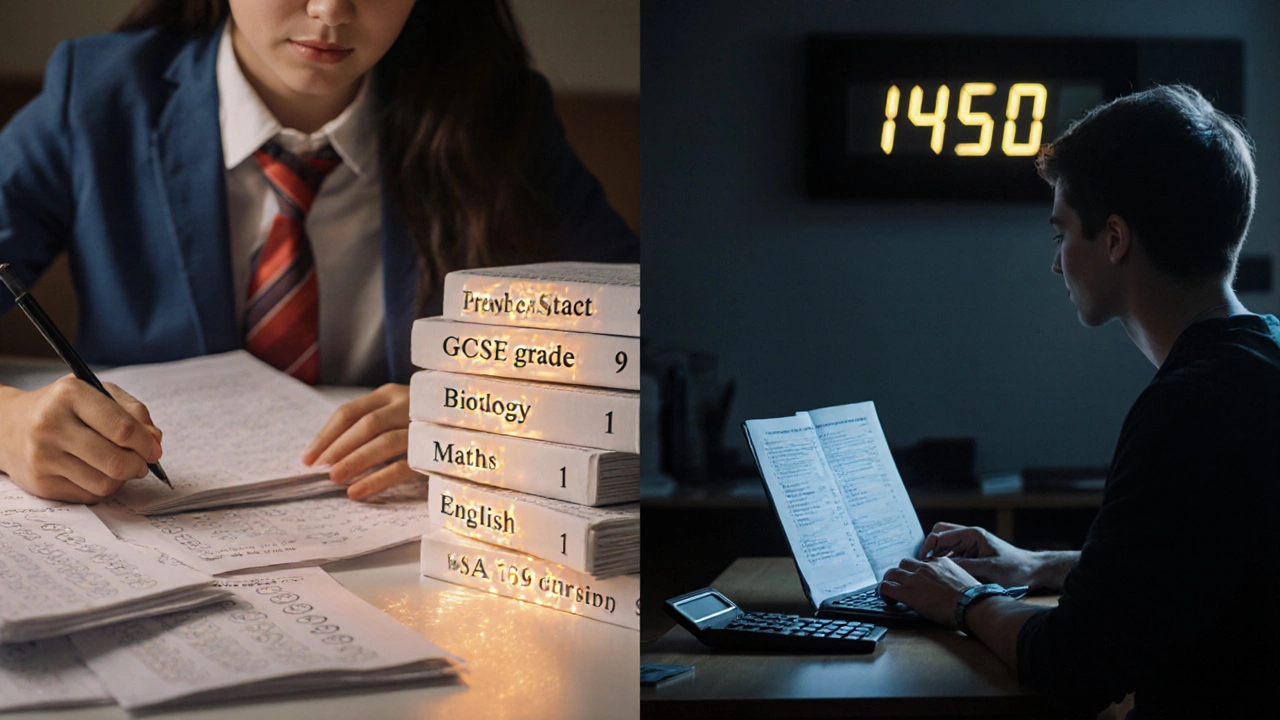GCSE Help Straight From St. Andrews Shifnal
Feeling the pressure of upcoming GCSEs? You’re not alone. At St. Andrews Educational Institution we’ve seen dozens of students wonder how to turn hours of study into real progress. The good news? Simple, proven habits work better than any fancy study gadget.
What Makes a 9 in GCSE Possible?
First off, a grade 9 isn’t magic – it’s the result of focused practice. Look at the most common stumbling blocks: vague notes, last‑minute cramming, and ignoring past papers. Replace those with three steps:
- Active recall. After reading a chapter, close the book and write down everything you remember. This forces your brain to fetch information, which solidifies memory.
- Spaced repetition. Review key points after one day, then three days, then a week. The spacing keeps the material fresh without overload.
- Past paper drills. Do a timed section, check the mark scheme, and note where you lost marks. Real exam conditions train you to manage time and stress.
Our students who followed this routine saw an average boost of two grades. It’s not about studying longer – it’s about studying smarter.
Best Revision Technique for GCSE
There’s a flood of advice out there – flashcards, mind maps, group study. The technique that actually works for most learners combines the three methods above with a short, focused “revision sprint.” Here’s how to set it up:
- Pick a subject and a single topic (e.g., chemistry bonding).
- Set a timer for 20 minutes and use active recall only – no books, no notes.
- Take a 5‑minute break, then spend another 20 minutes reviewing mistakes and filling gaps with concise notes.
- End with 10 minutes of past paper questions on the same topic.
Repeat this cycle three times a day and you’ll notice sharper recall and less anxiety on exam day. The short bursts keep your brain engaged without burning out.
St. Andrews also offers extra support: after‑school study clubs, one‑to‑one tutoring, and online resources that match the GCSE syllabus. Our teachers know the exam board’s mark schemes inside out, so they can point out exactly where you lose points.
If you’re struggling with a particular subject, book a free drop‑in session. We’ll pinpoint your weak spots, suggest a quick revision plan, and give you practice questions to try at home. No jargon, just clear steps you can follow tonight.
Remember, consistency beats intensity. A 30‑minute review each night beats a marathon 5‑hour session the night before. Keep a simple tracker – a notebook or a phone app – and mark off each study sprint. Watching those check marks add up is a huge confidence boost.
Finally, take care of yourself. Sleep, regular meals, and short movement breaks keep your brain firing on all cylinders. The best revision plan includes time for a walk or a quick stretch every hour.
Ready to turn those GCSE worries into solid results? Grab a notebook, set your timer, and start the first 20‑minute sprint now. St. Andrews is here to cheer you on every step of the way.
Is GCSE Equivalent to SAT? A Clear Comparison for Students and Parents
GCSEs and the SAT are not equivalent. GCSEs measure subject knowledge at 16, while the SAT assesses college readiness. UK students need the SAT for US colleges; US students need A-levels for UK universities.
MoreCan You Really Pass GCSE Without Revision? Honest Answers, Surprises, and Stats
Thinking of skipping revision for your GCSE exams? Here's exactly what happens, with honest data, real stories, and must-know facts to help you decide your next steps.
MoreIs 5 a Bad GCSE Grade? What it Really Means
A GCSE grade 5 is often misunderstood—some think it's just average, others worry it’s not enough. This article breaks down what a grade 5 actually means, how it affects your next steps in education and work, and what you can do if you’re aiming higher. Find out the reality behind the numbers and get practical advice for your revision strategy. We'll cut through the confusion and look at what matters for your future.
MoreIs GCSE American or British? What You Need to Know for Revision
Wondering if GCSEs are American or British? This article breaks down what GCSEs really are, who takes them, and how they fit into different education systems. You'll learn the biggest differences between British and American exams, get practical revision tips, and find out how this all affects students. If you're confused by the term 'GCSE' or prepping for exams, you'll get the clarity you need right here.
MoreUnderstanding GCSE: What Does It Really Mean?
The GCSE, or General Certificate of Secondary Education, is a crucial exam for students in England, Wales, and Northern Ireland, taken typically around ages 15-16. This article breaks down what GCSE means, its importance, how it's structured, and tips for effective revision. Whether you're a student facing these exams or just curious, this guide will provide you with essential insights and practical advice to conquer the GCSE. Discover strategies to tackle the preparation process with confidence and achieve your desired results.
More




